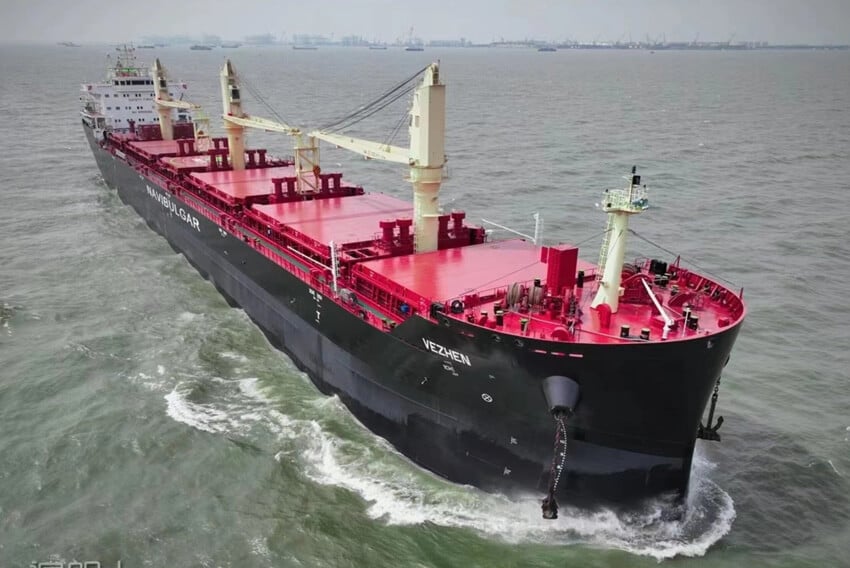Swedish Prosecutor Confirms January Cable Break was Accident by Bulker

The Swedish Prosecution Authority reports it has closed the investigation into a January communication cable break in the Baltic, convinced that it was an accident. They confirmed that the Navibulgar vessel Vezhen had caused the break, but said there was no evidence of serious sabotage or other crimes.
The bulker Vezhen (32,196 dwt), built in 2002 and registered in Malta, had departed Ust-Luga, Russia, on January 24, and two days later, the cable damage was reported south of Gotland, Sweden. Swedish authorities detained the vessel for an investigation, but released it at the beginning of February, saying it was not a case of gross sabotage. They, however, continued the investigation to piece together the events.
The final statement says they determined through interviews and reviewing the vessel’s Voyage Data Recorder and other investigations that there was very bad weather with high waves in the Baltic on January 25. They also reviewed video footage from the vessel, including at the time of the cable break, to conclude it was an accident.
“The causes of the cable break have been clarified,” said Public Prosecutor Mats Ljungqvist at the National Security Unit. “The investigation clearly shows that the cable break was caused by a combination of severe weather, technical deficiencies, and suspected inadequate seamanship on the vessel in question.”
An inspection of the ship showed the anchor should have had three independent safety devices, but two had been out of order for some time. The third device broke on January 25 as the vessel was hit by the high waves. The anchor and the full length of the chain were released. It caused the vessel to slow and turn, but the autopilot compensated, and no alarm sounded. The ship continued forward with its dragging anchor, snagging the subsea communication line running between Sweden and Latvia.
District Attorney Mats Ljungqvist said they had concluded it was not a deliberate act. He noted there was no provision to charge a negligence crime.

that matters most
Get the latest maritime news delivered to your inbox daily.
It was noted that the circumstances are very similar to an event a month earlier when the shadow fleet tanker Eagle S damaged power and communication cables off Finland. Three officers were charged in Finland with negligence crimes, but the court ruled it lacked jurisdiction to rule in the case because the damage was in international waters. The case in Finland is currently being appealed, as prosecutors believe the crew should have detected the dragging anchor and corrected the problem before it damaged the cables.
The Swedish prosecutors noted that they had handed over the Vezhen case to Latvia’s criminal investigation authorities. Latvia is still investigating, but the case has been closed in Sweden.
